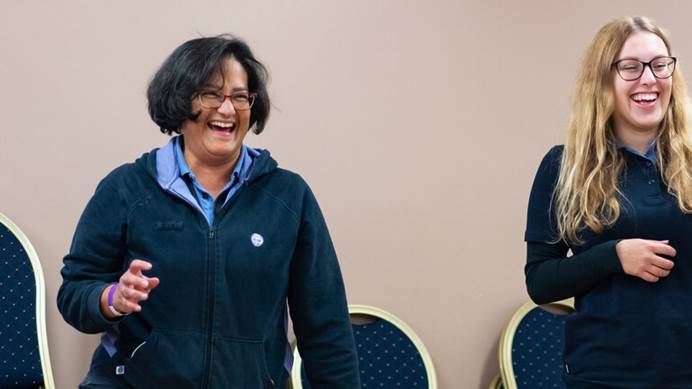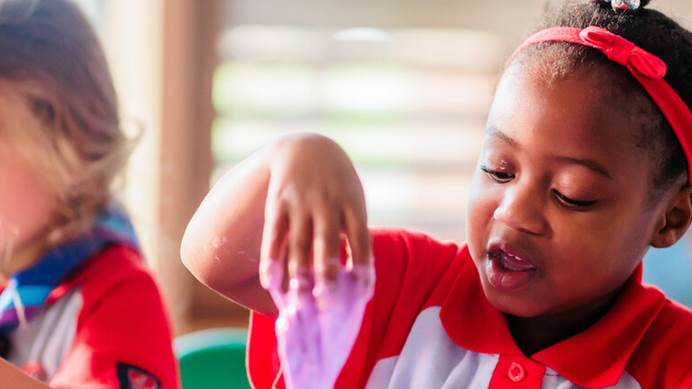Involving parents
Get parents and carers involved in the world of guiding
Many parents and carers tell us they'd love to help with Girlguiding if they were asked.
Parents and carers have all sorts of skills that could make a trip or meeting extra exciting, or simply make your role as a volunteer easier. And of course, the more help you have the more girls can join your unit.
Who better to ask for help than the people who see first hand how much Girlguiding benefits girls? When girls get back from unit meetings and camps, it's their parents and carers who see how excited they are. That means we're already half way to getting them onboard.
Ways to get parents and carers involved
There are lots of ways you can work with parents to make your role as a volunteer easier. Here are a few things that other units have tried and tested:
Start a parent rota
Rotas are a great way to open up your unit to parent and carer helpers. Don’t forget, it’s not just mums who can be involved but dads, aunts, granddads, carers and older siblings too!
- To know if any parents and carers with girls in your unit are interested in helping out, you can send them an email to ask if anyone would like to lend a hand. Be sure to share what’s coming up in your unit so they know if it’s something they’ll be able to support you with.
- If you receive interest, you can create a rota with 1 or 2 dates given to each parent per term.
- Keep in touch and remind them to come along nearer the time.
All parents, carers and family members who choose to help with a unit should read the unit safeguarding guidelines so make sure you send them out in an email. It’s important all parents and carers who help are always supervised by a recognised volunteer in your unit.
Remember, anyone who helps out more than twice per term needs to register to become a volunteer as this would be considered a formal volunteer role that needs to complete the necessary recruitment and vetting checks.
If a parent or carer is attending every week to support a young member with additional needs they should register as an individual support unit helper. This will take them through the same recruitment checks, get them set up on GO and it’ll will also mean they receive newsletters and other volunteer information.
Use their skills and interests
Find out if parents have skills or interests that could help. They could teach first aid, play an instrument or review accounts. If they have an interesting job, such as being a police officer or working with animals, they could talk to the unit about it or help with an activity. Tell them about all the different volunteer roles, including those not working directly with girls. You can also involve parents and carers in a one-off event, adventure activity or residential.
Remember that some of this information might be captured in the volunteering section of their child’s new starter form.
Help parents understand more about guiding
If you haven’t got many parents and carers interested in volunteering, you may need to help them understand more about guiding. Invite them to join in at the end of meetings so they understand what you do.
Keep them up-to-date with your meeting plans and always invite them to special events such as Promise ceremonies in advance. And take the time to chat and tell them why you love volunteering for Girlguiding. If visitors are attending meetings who aren’t parents, carers or family members, you should check our guidance on including external visitors.
Parents don’t have to volunteer at their child’s unit. Let them know about other units nearby that might need extra help.
Not all parents and carers will know local guiding is run by volunteers. To help them understand, put an email footer on the unit email account. It could say something like:
‘Your local Girlguiding unit is run by leaders who are volunteers. Please be patient if it takes us a few days to get back to you'.
Support parents who offer help and say thank you!
Give them specific tasks so they feel involved and confident in what they're doing. Whether it's helping to pack up or running an activity, you can give them more responsibility over time to make them feel part of the team. Whatever they do, make sure you thank them for their time, especially if they're new to volunteering and they're very busy. Read our ideas for ways to say thank you.





